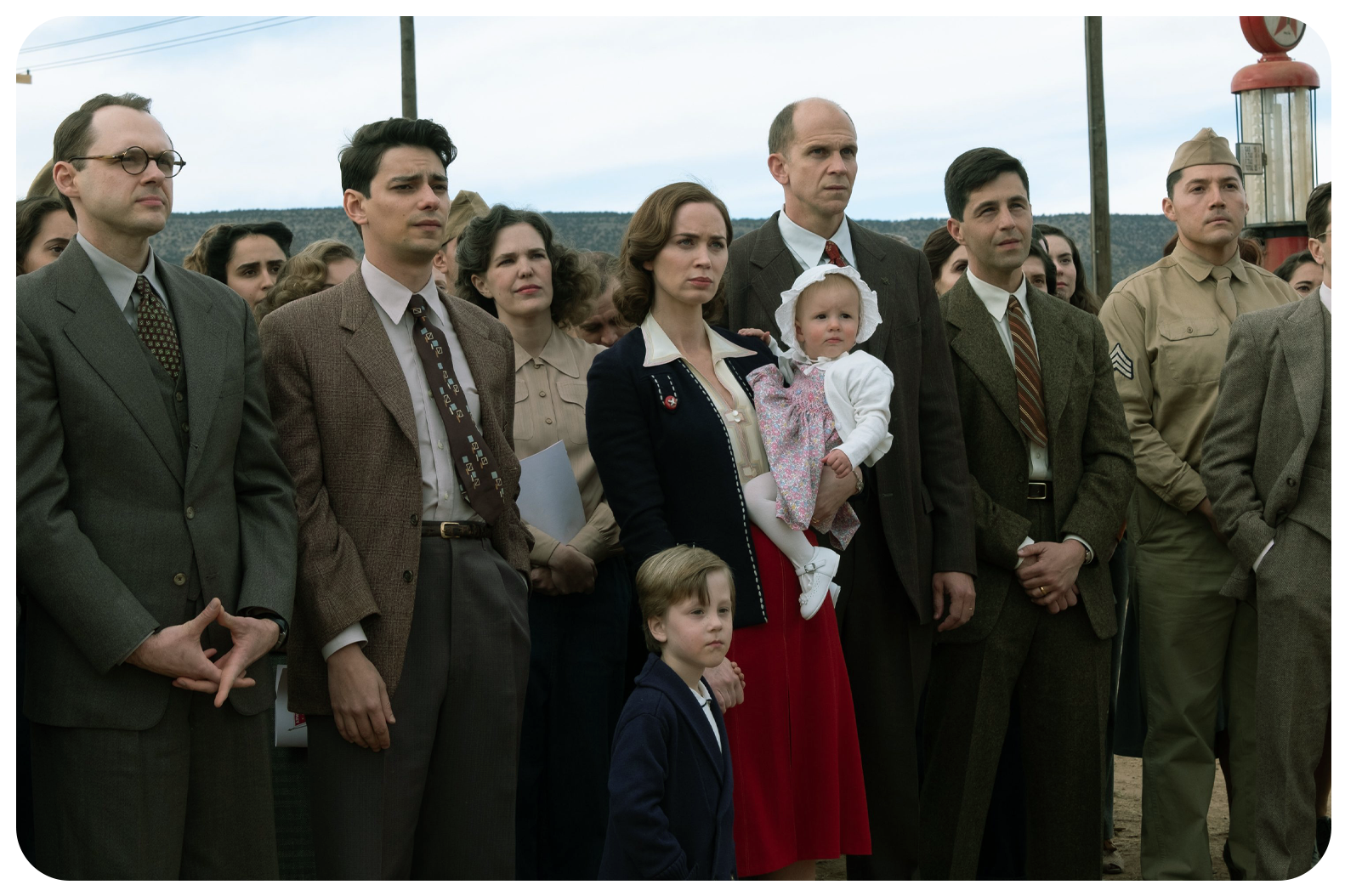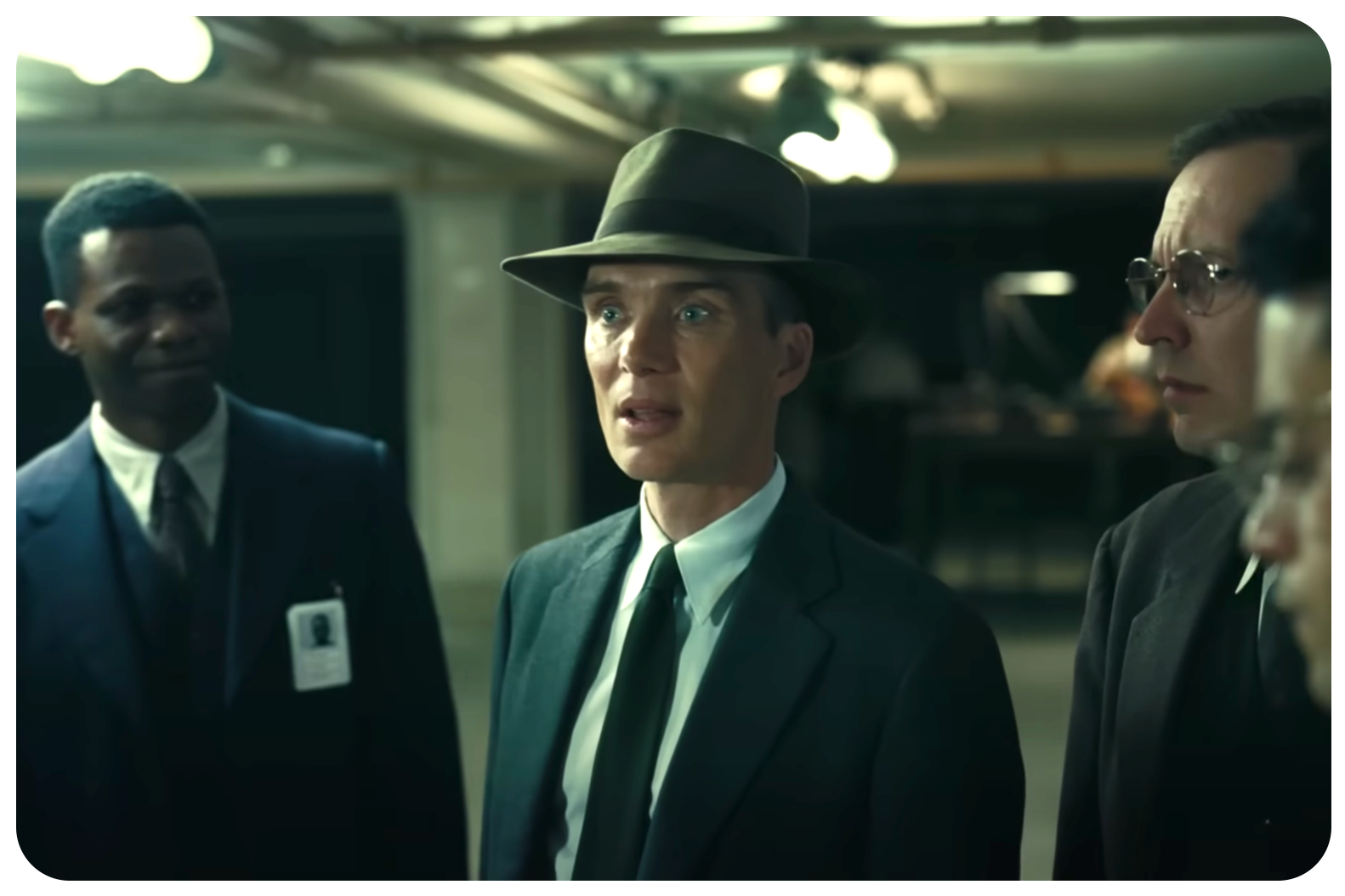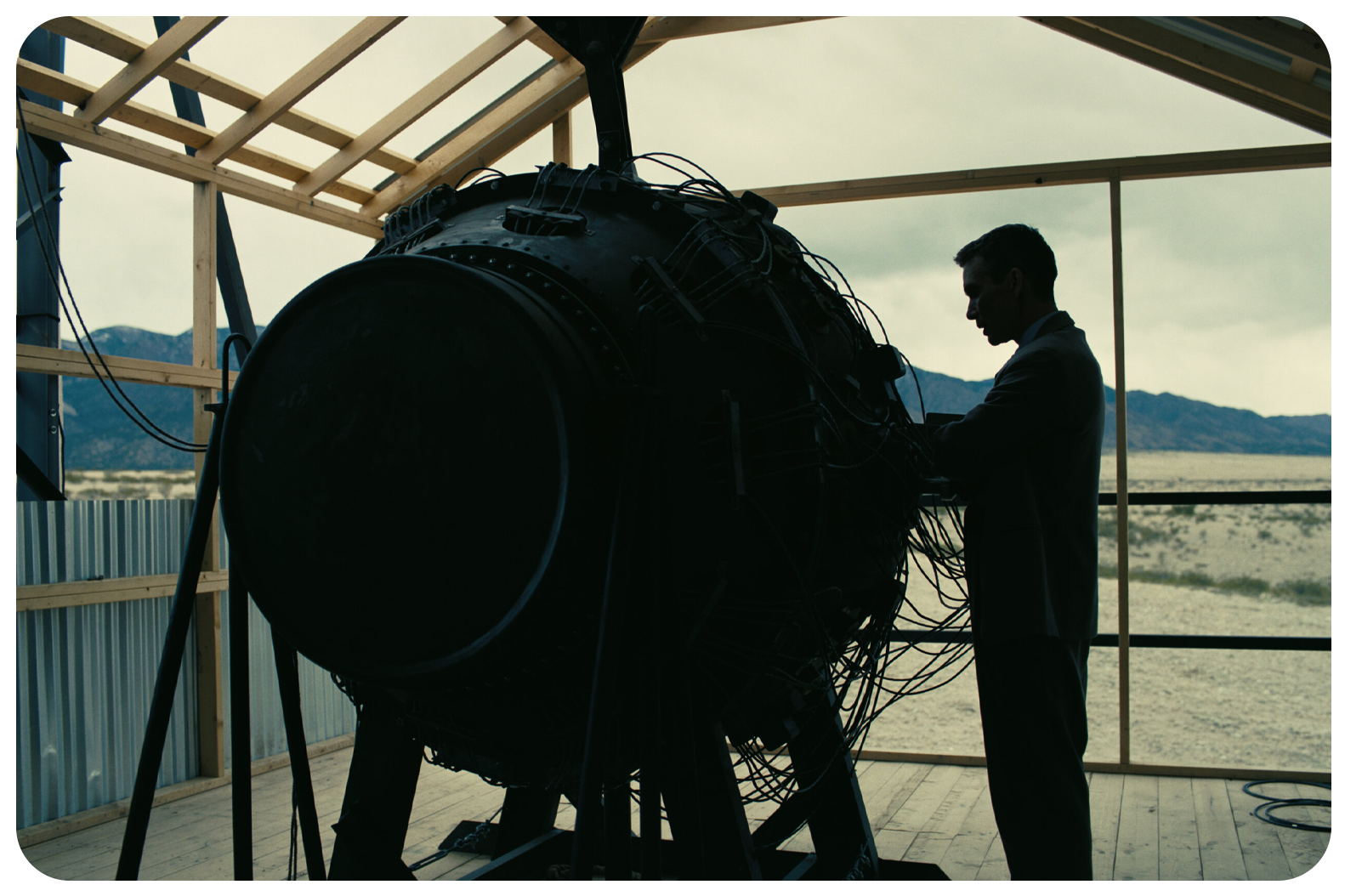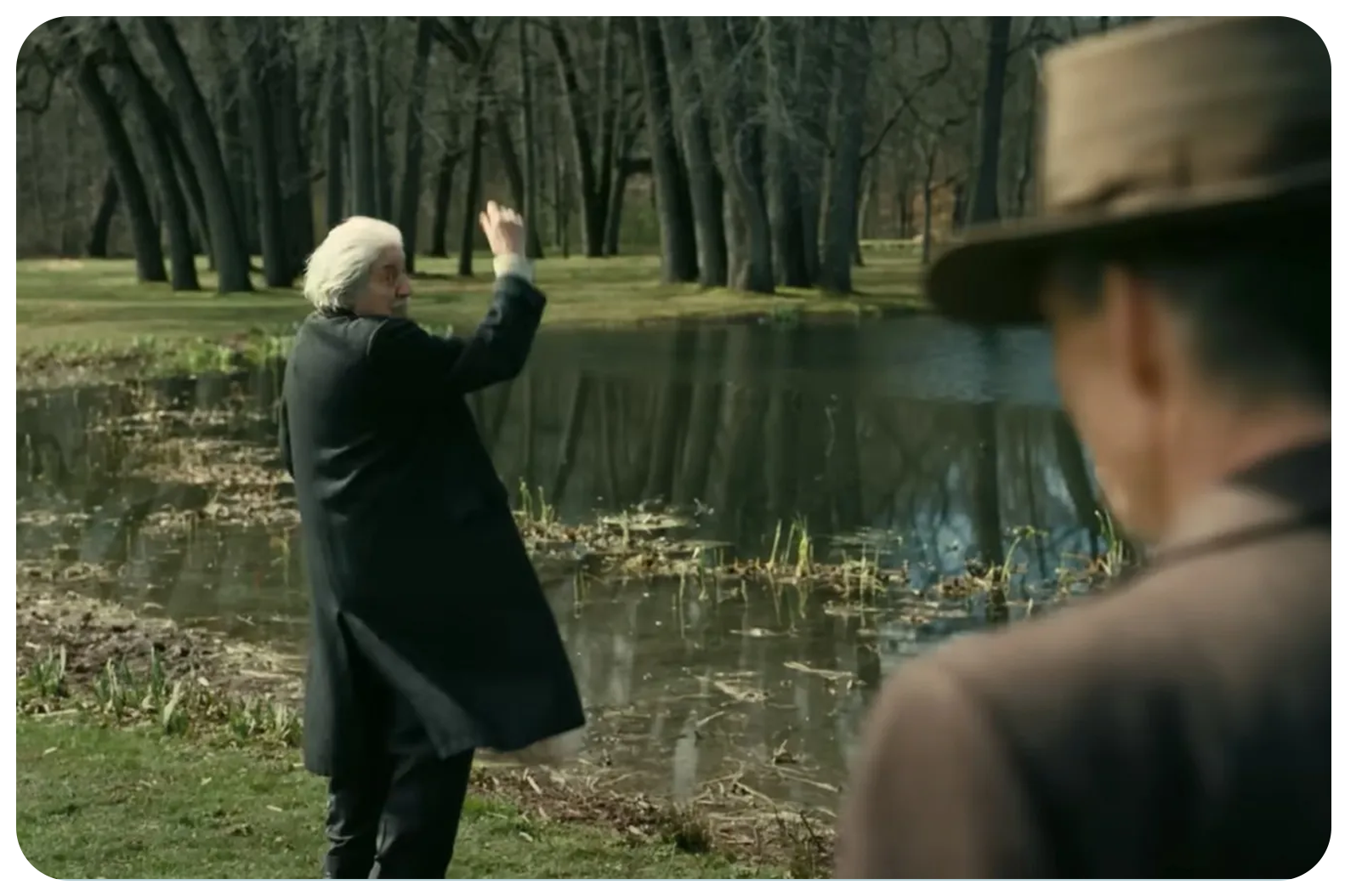“Now I am become death, the destroyer of worlds.”
Isn’t that quite a mind-blowing and scary remark to make about yourself? Yet this is what renowned scientist J. Robert Oppenheimer is said to have remarked upon the explosion of the first atomic bomb.
I recently had the pleasure of watching Christopher Nolan’s latest film Oppenheimer together with my mother (thanks, mum!) and had been unusually eager beforehand to watch it for two main reasons.
- I hold a deep passion for modern history (and knew who Robert Oppenheimer was) due to my educational background
- I’ve long regarded Christopher Nolan very highly as a director and have thoroughly enjoyed many of his other movies
To add, I was also aware of the book that the film was based on and knew that its particular author is quite prolific in writing about other historical figures.
And I wasn’t disappointed with the end product at all!

The cinematography was utterly spectacular, with a harrowing and powerful musical score to accompany it. And Cillian Murphy was just fantastic as the titular character.
For me, this movie represented a really cool intersection of 20th century world history, modern science, political intrigue and philosophical questions on morality and good and evil.
After I saw the movie, I also became quite convicted that there are a number of theological and spiritual themes that could be drawn from Oppenheimer which reveal a lot about human nature, the brokenness of this world and our need for the Gospel.
Indeed, as one online essay puts it, this film “is about more than just the man… it explores the moral agony that comes with the power to destroy the world”.
As such, let me share a few of my reflections on Oppenheimer.
Good company is hard to find
In the film, Robert Oppenheimer struggles to find good company.
First, he gets mixed up with Communists (even entangling himself in an affair with one). And after the war, he is arguably betrayed and discarded.
There are many reasons to unequivocally reject and denounce the system and ideology of Communism, hence why I instinctively viewed Oppenheimer’s choice to become close with open Communists as unwise, even if well-intentioned.
Communism’s troubling ideological aspects aside, his association with Communists draws him into a sordid affair with a woman (Jean Tatlock) from these circles.
She appears to be a rather unstable person, and eventually takes her own life.
Later on, this affair is what is used by his opponents to paint him as a Communist sympathiser potentially disloyal to his country.

After World War II is over, you almost get the feeling that Oppenheimer is being chewed and spat out by a society that no longer needs and therefore no longer values him.
There is even a scene where he meets President Harry Truman (who I actually quite admire in real life) in the White House, only to be dismissed as a “crybaby”.
Later, Oppenheimer’s security clearance is ultimately stripped from him, following much unfair questioning in a security hearing. We also see Lewis Strauss (impressively portrayed by Robert Downey Jr.) turning on Oppenheimer due to his self-interest and insecurity.
While Oppenheimer quite evidently served his country well in a critical moment, he wasn’t treated so well by her afterward.
Thankfully, God’s Word provides us a better way of relating to other people.
Scripture provides great wisdom on the need, and even the practical steps, to be discerning of who we are keeping company with, so they will not lead us on wrong paths (such as getting mixed up with the wrong crowd or in sexual immorality).
Scripture also shows us how we should care for and show love to others, rather than merely using them for our desires and dumping them when they have served their “purpose”.
Jesus exemplified this better than anyone ever has, actively reaching out to people on the margins of society who others found no use for.
We are called to do the same. And we are called to bear each other’s burdens (Galatians 6:2) instead of casting people aside and seeing them as burdens.
In this world you will have trouble
Since we live in a world under the curse of sin and unrighteousness, believers will know that there will be troubles that persistently hover over this world.
The world of Oppenheimer is similarly a world plagued by troubles. There are two layers of historical context that contribute to this sense of peril in the film – the urgency surrounding American aims in both World War II and the early stages of the Cold War.
In the film, there is a sense of peril that is based on the very reasonable fear that the Nazis would develop an atomic bomb before the Americans. Oppenheimer himself openly articulates, and intentionally acts upon, this point.
Yet when the two atomic bombs are eventually dropped on Japan, and hundreds of thousands of Japanese are tragically obliterated, a new sense of peril arises.
Now, the prospect of mankind wiping itself out comes to the fore.

And as the Cold War heats up, America’s former ally in the Soviet Union also begins to pose a new peril for them and for the world.
Additionally, the Cold War enables a political climate that clamps down on the free expression rights of those with unfavourable political leanings in America. This affects Oppenheimer and his wife negatively, who endure unfair questioning from the authorities.
In real world modern history, the shadow of nuclear warfare would hang over the world for the rest of the Cold War era, and still remains an issue even today.
Harry Truman himself had to push back against his top general who wanted to use nuclear weapons in the Korean War; meanwhile, many other American Presidents after him, like Dwight Eisenhower, John F. Kennedy and Ronald Reagan, also had to carry the burden of keeping nuclear apocalypse at bay.
Those leaders handled this burden quite responsibly, so imagine the danger the world would be in if they were less responsible!
CS Lewis wrote an influential essay where he pondered the question of how to live in an atomic age.
His response was that we should remember that all humans, throughout history and in every land, have always faced a sense of peril.
There was the threat of disease, famine, invaders, lawlessness, transport accidents… It only goes to show that danger is a reality of life on this earth.
In my view, this cycle of continuous peril and trouble is a stark reminder of human sinfulness, and even a warning of judgment to come if we continue in our ungodly ways without repenting (Luke 13:3).
Secondly, it’s a reminder that we must trust in God’s sovereignty (Job 38:4) and His goodness even as we wrestle with the darkness within our own lives and in the world around us.

Man’s wisdom vs God’s wisdom
When I consider this fallen world, made dangerous with atomic bombs and modern conflict, I cannot help but think back to Adam and Eve’s tragic act of disobedience in the Garden of Eden.
At its core, that account is a lesson on what it means when humans pursue wisdom and knowledge on their own terms and for their own purposes, rather than out of a desire to honour and serve God.
The invention of nuclear weapons shows that the pinnacle of human wisdom brings utter destruction to humanity, instead of uplifting it.
As one of the greatest minds of his time, Oppenheimer has incredible aptitude for scientific inquiry.
Yet the greatest of human knowledge fails to fulfil him deep inside, nor does it guard him from unwise choices that wreck his life.

“There is a way that seems right to a man, But its end is the way of death” (Proverbs 14:12)
As Christians, we can rejoice and be grateful that we have access to the wisdom that God provides us, and that it is far more fulfilling.
Indeed, Scripture makes clear the difference between worldly wisdom and wisdom from God.
One of the most well-known Proverbs tells us to trust in the Lord with all our hearts and to lean not on our own understanding.
And in the New Testament, James tells us to seek wisdom from above rather than earthly wisdom that leads to evil (3:14-18).
When we pursue worldly ideals of brilliance, success or wisdom – whether individually or collectively – we run the risk of bringing destruction upon ourselves.
These idols of achievement and success may come in different forms, whether it be grand pursuits of scientific and technological advancement or individual fixations on popularity, academic results and career prospects.
Without Jesus in the picture, they are but earthly lures.
So, while this excellently crafted film shows us the darker side of our world and of human nature, I also see in it humanity’s need for the Gospel.
The Gospel is the good news that there is eternal life in Jesus, who will one day bring about the renewal of all things.
Jesus promises a resurrection for all who believe in Him and accept Him as Lord, and that our mortal bodies will be replaced by something greater.
So, let’s fix our eyes on Jesus as the author and perfecter of our faith (Hebrews 12:2).









